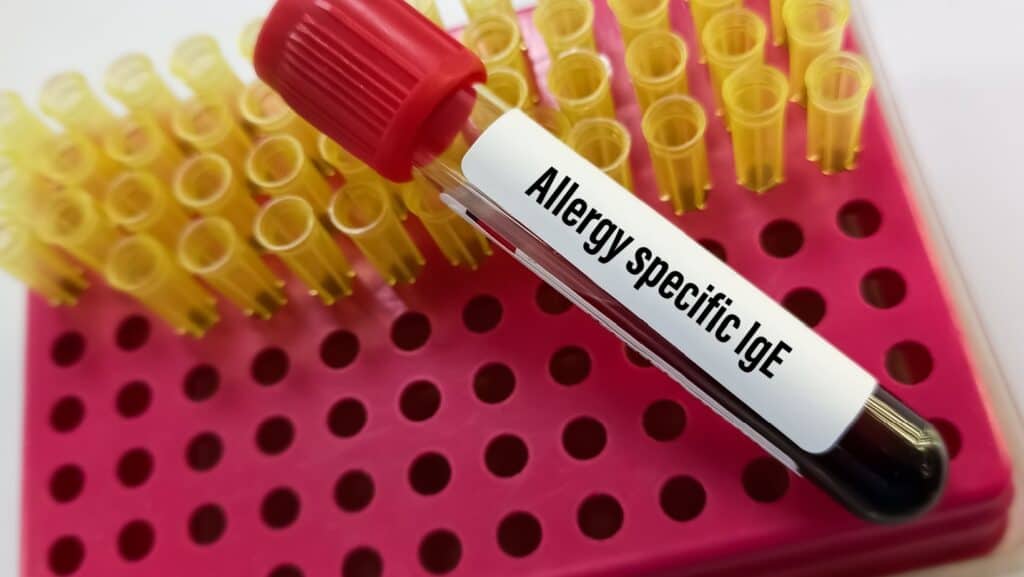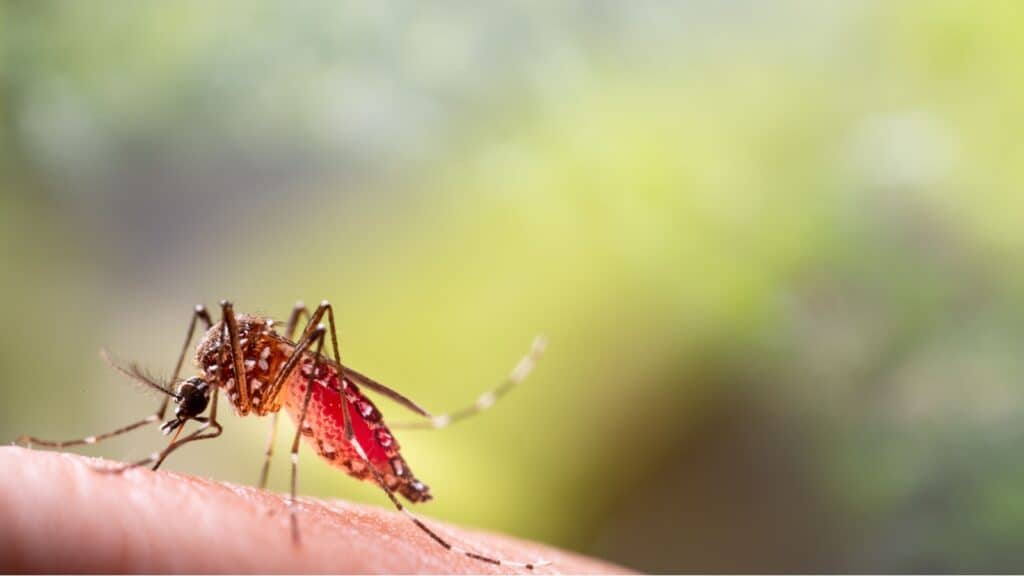Peanut Allergies on the Rise: What Every Parent Needs to Know
Peanut allergies are one of the most common food allergies, especially in children. Approximately 1-2% of the population in Western countries is affected by peanut allergies, with rates appearing to increase over the last few decades. Studies show that in the United States, peanut allergy prevalence among children rose from 0.4% in 1997 to 1.8% in 2010, though the rate of increase may be slowing.
Do Peanut Allergies Always Mean You Need An EpiPen?

If you have a peanut allergy, or know someone who does, you are familiar with the need to keep an EpiPen handy. This epinephrine injection can be life-saving, but is it the only medical and safety approach to peanut allergies?
Diagnosis of Peanut Allergies

Peanut allergies are typically diagnosed through a combination of patient history, physical examination, and testing. The following methods are common:
- Skin Prick Test (SPT): A small amount of peanut extract is placed on the skin, which is then pricked. If the person is allergic, a raised bump (wheal) will develop.
- Blood Test (IgE Test): This measures the level of peanut-specific IgE antibodies in the blood. Higher levels indicate a potential allergy, though results must be interpreted carefully alongside clinical history.
- Oral Food Challenge (OFC): Under medical supervision, the person consumes increasing amounts of peanut to determine if a reaction occurs. This is considered the gold standard for diagnosis but carries risks and is only done when necessary.
Can You Grow Out of Peanut Allergies?

Some individuals do outgrow peanut allergies, though this is less common compared to other food allergies like milk or egg. Studies published in the New England Journal of Medicine suggest that approximately 20-25% of children diagnosed with peanut allergies may outgrow them by adolescence. Regular follow-ups with allergists are recommended, as retesting can show whether sensitivity to peanuts has decreased over time.
If You Outgrow An Allergy, Is It For Life?

However, many who outgrow the allergy during childhood may redevelop it later in life, making continued caution essential.
Current Science on Prevention

The question of whether peanut allergies can be prevented has been the subject of intense research. The earlier recommendation was to avoid exposing children to peanuts, but this has shifted based on recent studies.
Have You Hear of LEAP?

The LEAP (Learning Early About Peanut Allergy) study, conducted in 2015, demonstrated a significant reduction in peanut allergies among children who were introduced to peanuts early. Infants who were exposed to peanut-containing foods between 4 to 11 months old had up to an 80% lower risk of developing a peanut allergy compared to those who avoided peanuts. This finding led to new guidelines recommending the early introduction of peanuts, particularly for infants at high risk of allergies (e.g., those with eczema or egg allergies).
Prevention Guidelines

The key prevention strategies now include:
- Early Introduction of Peanuts: For infants at risk of developing allergies, introducing peanut-containing foods around 4-6 months under the guidance of a pediatrician is advised.
- Avoidance of Delay: Research shows that delaying peanut introduction until after the first year of life may increase the risk of developing an allergy.
- Skin Care: Eczema has been linked to a higher risk of food allergies. Managing skin conditions early on may help reduce the likelihood of allergen sensitization.
Current Treatments and Advances

While peanut allergies are often lifelong, there have been significant developments in treatment. The FDA-approved Palforzia, an oral immunotherapy (OIT), in 2020. This treatment gradually desensitizes allergic individuals by introducing small, increasing amounts of peanut protein over time. It does not cure the allergy but helps reduce the severity of reactions in case of accidental exposure.
More Investigational Treatments

- Epicutaneous Immunotherapy (EPIT): Small patches containing peanut proteins are applied to the skin, stimulating desensitization without ingesting peanuts.
- Biologics: Medications like omalizumab (an anti-IgE antibody) are being researched for use alongside oral immunotherapy to enhance safety and effectiveness.
Prevalence Trends

Peanut allergy prevalence has been increasing in Western countries, but the rise has not been as steep in recent years. This might be attributed to the shift in early exposure strategies. Despite the increased awareness and efforts at prevention, it remains a significant health concern, especially in developed countries.
Challenges in Understanding

There are ongoing efforts to better understand why food allergies, particularly peanut allergies, have increased. Hypotheses include:
- The Hygiene Hypothesis: Improved hygiene and reduced exposure to microbes may lead to a higher risk of allergies.
- Genetic Factors: Genetics play a significant role in predisposition to peanut allergies.
- Environmental Factors: Changes in diet, pollution, and lifestyle could influence allergy development.
Is There a Cure?

As of now, there is no cure for peanut allergies. Desensitization therapies like Palforzia aim to reduce reaction severity, but strict avoidance remains the primary recommendation. Researchers continue to explore various approaches, including vaccines and gene therapies, to address the root causes of peanut allergies.
Conclusion

Peanut allergies are highly prevalent, particularly in children, and their incidence has increased over the past few decades. Diagnosis is carried out through clinical evaluation and testing, and while many children may outgrow the allergy, for others it remains lifelong. The LEAP study has revolutionized the approach to peanut allergy prevention, emphasizing early introduction as a critical strategy. Despite advances in treatments, complete prevention or a cure remains elusive, but ongoing research offers hope for the future.
Colorectal Cancer Rising Among Millennials and Gen Z: 5 Essential Ways to Protect Yourself

Colorectal cancer, once considered a disease predominantly affecting older adults, is increasingly being diagnosed in people under 50. This alarming trend has significant implications for Millennials and Gen Z. We explore the factors contributing to this rise and provide five crucial strategies to safeguard your health.
READ: Colorectal Cancer Rising Among Millennials and Gen Z: 5 Essential Ways to Protect Yourself
Why Do Mosquitos Seem To Like Me So Much, and What Can I Do About It?

Have you ever wondered why mosquitoes seem to prefer biting some people over others? Understanding the reasons behind this can help in mitigating their impact. Mosquitoes are attracted to certain individuals due to factors like body odor, carbon dioxide, and body heat. These pests are not just annoying; they can also carry dangerous diseases such as malaria, dengue fever, and Zika virus. In this article, we explore why mosquitoes are drawn to specific people, the health risks they pose, and effective strategies to protect yourself from their bites.
READ: Why Do Mosquitos Seem To Like Me So Much, and What Can I Do About It?
Is There A Link Between Being A ‘Good Girl’ And Autoimmune Disease In Women?

Women Rising®, an 11x award-winning women’s empowerment and media company founded by autoimmune-diagnosed, 15x award-winning documentary filmmaker, Sara Hirsh Bordo, recently released findings from Autoimmunity and the “Good Girls” ™ the first-ever sociological survey exploring the intersection between empowerment and autoimmunity in American women. READ: Is There A Link Between Being A ‘Good Girl’ And Autoimmune Disease In Women?
Join Us

Join us on this empowering journey as we explore, celebrate, and elevate “her story.” The Queen Zone is not just a platform; it’s a community where women from all walks of life can come together, share their experiences, and inspire one another. Welcome to a space where the female experience takes center stage. Sign up for our newsletter so you don’t miss a thing, Queen!







